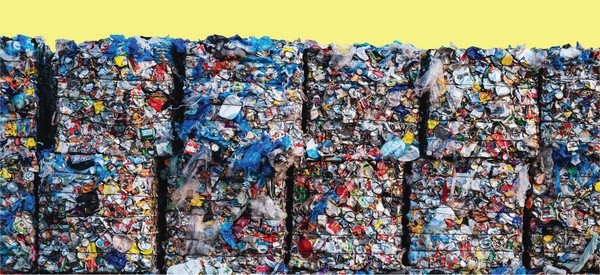Plastic is not the problem, it’s what we do with it. This has been Scion’s consistent message as we focus on the plastic issues facing New Zealand.
As part of clarifying and accelerating this discussion, Scion’s Chief Science and Innovation Officer Dr Elspeth MacRae was a panellist on the Rethinking plastics in Aotearoa New Zealand report for the Office of the Prime Minister’s Chief Science Advisor.
This landmark report was launched with a commitment from government to set goals to shift away from low-value and hard-torecycle plastics such as PVC and polystyrene, and from single-use packaging such as beverage containers.
Scion has also begun developing a New Plastics Economy (NPEC) roadmap for New Zealand’s plastic industry. The New Plastics Economy is a circular economy initiative with plastic-specific goals. It was started by the Ellen MacArthur Foundation, who invited countries, companies and organisations to commit to ridding the world of plastic waste using circular economy principles.
New Zealand’s unique roadmap will focus on our plastics industry for a solution-focused, rather than a government-led approach.
Plastics New Zealand, Packaging New Zealand, WasteMINZ and the Sustainable Business Network have joined forces with Scion in this project. Together, we will chart New Zealand’s path towards a NPEC.
A total of 13 countries published NPEC initiatives, roadmaps or action plans in 2018-19. In particular, New Zealand shares common goals with Finland. The Finnish NPEC strategy connects different sectors of the economy with their new approach to plastics. They aim to integrate a NPEC-aligned plastic sector with their circular bioeconomy goals by using existing biomaterial conversion from the pulp and paper industry and beyond.
Unlike other countries, New Zealand’s plastics industry is influenced by three factors that can greatly shape the way we transition to the new economy.
Firstly, the New Zealand plastics market is relatively small. This means we have less leverage to demand change and it affects the feasibility of establishing a comprehensive plastic recycling sector.
Secondly, all polymers used to make plastic products are imported. This makes access to new material options and working with the full life-cycle of plastics challenging for our domestic plastic industry.
Lastly, most of New Zealand’s manufactured plastic products are exported, and demand is subject to the importers’ requirements (consumer demands or regulation-based).
These unique New Zealand factors, are why New Zealand needs to work closely with industry.
The next piece of the puzzle, involves establishing a material flow of plastics in New Zealand, understanding where it goes, and how it is dealt with after use. Working with manufacturers allows us to start at the beginning of the value chain.
The final ‘New Zealand - New Plastics Economy Roadmap’ will be completed mid-2021.
Links
Building a roadmap to New Zealand’s New Plastic Economy
A future free from plastic waste
Government pledges next steps on plastic waste
Funders: Ministry for the Environment
Collaborators: Packaging NZ, Plastics New Zealand, The Sustainable Business Network, WasteMinz

